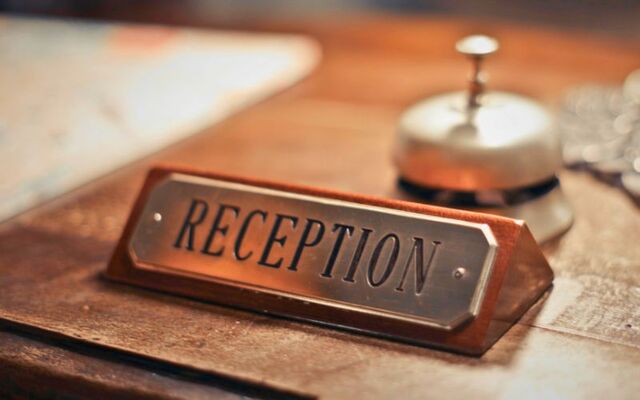An “accommodation levy” on hotels and short-term lettings is being explored by the Irish Government as a method of raising funds for councils.
A briefing note prepared by officials for Enterprise and Tourism Minister Peter Burke, seen by BusinessPlus.ie, outlines plans to introduce the charge – but it is set to be heavily opposed by the tourism sector.
A similar measure was introduced last year in Scotland, where it is known as the “tourist tax," and adds 5% to the cost of an overnight stay in accommodation such as hotels, B&Bs and holiday lets.
The briefing note says the incoming Short Term Letting and Tourism Bill “will be of particular assistance in planning, introducing and collecting an accommodation levy."
However, industry sources have said that the introduction of any “accommodation levy” will be vigorously opposed by tourism and hotel bosses.
The proposal was part of the agreement struck between Fianna Fáil, Fine Gael, and the Greens when they forged a coalition at Dublin City Council (DCC) after last year’s local elections.
It said: “Parties will seek clear commitments from the central government on improving council funding, including the introduction of a hotel tourist tax, to better support city services and ease pressure on small businesses’ commercial rates.”
In 2023, DCC published a proposal to impose a 1% hotel tax and said it could raise €10m in income for the council.
Other proposals floated include a €3 surcharge on every hotel room booked.
The idea has never previously gained support at central government level as it would require the Department of Housing and the Department of Finance to bring forward legislation to enable a new tax to be introduced.
The idea is also not in the recently published Programme for Government.
However, a spokesman for the Department of Enterprise has confirmed the measure is being examined on foot of queries by the Irish Daily Mail.
He said the introduction of a tourism accommodation levy was proposed in the report of the Commission on Taxation and Welfare in September 2022 and more recently in a Dublin City Taskforce report in October 2024.
The Commission on Taxation said: “Tourists and other visitors get a short-term benefit from public goods and services, such as water and sewerage systems, utilities, waste facilities, parks, security and public safety services, without having contributed to their funding.
“The rationale behind an accommodation tax is to ensure that those guests contribute to the ongoing costs of providing these goods and services.”
In addition to boosting council coffers, Government officials believe the move could help to address the housing crisis, and reduce the estimated 32,000 short-term lettings – such as Airbnbs – that are advertised online in Ireland.
However, the chief executive of the Irish Tourism Industry Confederation (ITIC), Eoghan O’Mara Walsh, signalled his opposition to the move.
He said: “We have always been opposed to the idea of an accommodation tourism levy.
“It would be an additional tax on Irish people holidaying at home as well as international visitors and Fáilte Ireland already estimates that 23c of every euro spent by a tourist goes back to the Exchequer in direct tourism-related taxes.
“Ireland is an expensive place to visit and we must work really hard to protect our value-for-money ratings.
“Another tax when costs of business are already squeezing margins is not what industry want.
“Scotland has recently brought in an accommodation levy and it has proved very damaging for their tourism industry.
“The idea of a levy for Irish tourism never featured in the Programme for Government so I am surprised it is being mentioned.”
One industry source said: “Although it has often been talked about, this is the first time I have seen an intention to ‘plan, introduce and collect’ an accommodation levy.”
Paul Gallagher, of the Irish Hotels Federation, has previously told the Oireachtas of his opposition to the proposed tax.
He said: “The level of taxation applied or enforced on the hotel industry is already extraordinary. We have not even mentioned local authority rates.
“Some 800 hotels in Ireland pay 12% of the total rates bill for the whole country.
“It is simply unsustainable.
“For example, across the road I pay €87,000 for a 67-bedroomed hotel whether those beds are occupied or not. It is an extraordinary burden we already bear.
“Notwithstanding the Government wanting to broaden the base, I am not sure you will find us willing participants in doing so.”
While the industry is opposed to the plan, DCC has previously pointed out that Amsterdam already operated a “tourist tax," saying it was introduced in 2012 and had been successful, with”‘little opposition."
The council said: “It is accepted that residents and businesses of Amsterdam pay for the maintenance and upkeep of many facilities enjoyed by tourists such as road and cycle networks, parks, cultural institutions, events, water and drainage, etc.
“There is an accepted argument in the Netherlands that it is wholly reasonable to ask tourists to make a contribution to the costs associated with aspects of the place that they visit.”
Last year Ireland adopted EU-wide short-term rental regulations that will be enforced from next year. The legislation underpinning that will also create a register of short-term letting properties.
Tourism taxes are applied in many other European cities including Venice, Manchester, Barcelona, and Lisbon.
*This article was originally published on BusinessPlus.ie.




Comments